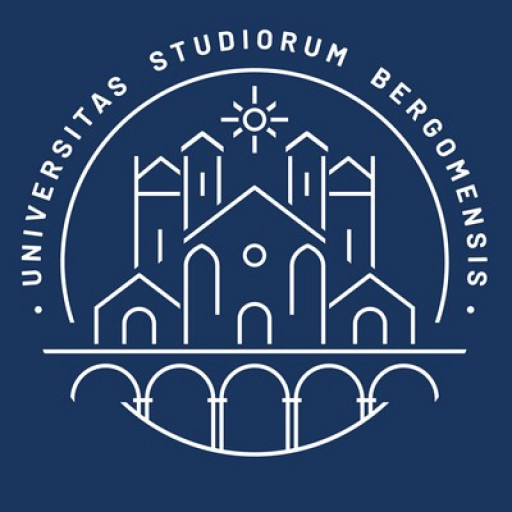Photos of university / #ucl
The MSc in Global Migration at University College London offers a comprehensive interdisciplinary exploration of the complex and multifaceted phenomena of migration in the contemporary world. This programme is designed for students interested in understanding the social, political, economic, cultural, and legal aspects of migration across different regions and populations. Students will examine the historical developments, current trends, and future challenges associated with migration processes, including forced displacement, asylum seeking, refugee movements, labor migration, and irregular migration. The curriculum combines insights from sociology, political science, anthropology, law, economics, and human geography to provide a nuanced understanding of migration dynamics. Core modules cover topics such as migration theories, migration policies and governance, human rights and international law, and the impact of migration on societies and economies. Additionally, students have the opportunity to specialize through optional modules that address specific areas of interest, including gender and migration, migration and development, and urban migration. The programme emphasizes critical thinking, analytical skills, and empirical research methods, enabling students to assess migration issues from multiple perspectives. Through lectures, seminars, case studies, and research projects, students will develop a deep understanding of migration challenges and policy responses worldwide. The programme also offers practical training in data collection and analysis, along with opportunities for internships and project work with NGOs, governmental agencies, and international organizations. Graduates of the MSc in Global Migration are well-prepared for careers in policy analysis, research, advocacy, international development, and positions within governmental and non-governmental organizations operating in the fields of migration and human rights. The programme is ideal for those seeking to make a meaningful contribution to understanding and shaping migration policies and practices, fostering social inclusion, and promoting human rights across borders.
The programme combines theoretical and policy debates about migration. Students are equipped with the advanced skills, methods, concepts and theories essential for the study of global migration and gain the opportunity to apply them in both general and more specialised contexts relating to the processes, policies and politics of migration.
Students undertake modules to the value of 180 credits.
The programme consists of two core modules (30 credits), a compulsory methods module (15 credits), and five elective modules (75 credits) and a research dissertation (60 credits).
Core modules
- Interdisciplinary Approaches to Global Migration
- Issues in Global Migration
- Social Science Research Methodologies and Methods I
Elective modules
- Students choose a range of modules for courses offered across UCL which offer specialisation on migration which may include the following::
- Social Science Research Methodologies and Methods II (essential only if intending further research training)
- Thinking Space
- Migration and Urban Multiculture
- Mining Social and Geographic Datasets
- Globalisation and Security
- Gender, Generation and Forced Migration
- Ethnicity, Migration and Health
- Migration in the European Union
- International Human Rights Law
- Gender, Generation and Forced Migration
- Anthropology of Nationalism, Ethnicity and Race
- Anthropology and Development
- Postcolonial Cultural Geographies
- Comparative Human Rights Law
- Globalisation in the Twentieth Century
- Equality, Justice and Difference
- Population and Development
- Economics of Migration (Economics prerequisites)
Dissertation/report
All MSc students undertake an independent research project which culminates in a dissertation of 10-12,000 words.
Teaching and learning
The programme is delivered through a combination of lectures, seminars, presentations, discussions, independent reading, practicals and workshops. The majority of modules are assessed through coursework although a small number are assessed by examination.
Normally a minimum of an upper second-class Bachelor's degree in a relevant discipline from a UK university or an overseas qualification of an equivalent standard. Professional experience in relevant fields will be considered alongside academic qualifications.
Possible funding opportunities include: UK Foreign and Commonwealth Office Chevening Programme, Commonwealth Scholarships and Fellowships Plan and Ford Foundation International Fellowships Programme.
Other possible funding opportunities include: Marshall Scholarships - Marshall Commission, Fulbright Traditional Postgraduate Student Awards, US-UK Fulbright Commission and Thomas Wall Trust.
The MSc in Global Migration at University College London offers an in-depth exploration of one of the most pressing issues of the 21st century. This programme is designed to provide students with a comprehensive understanding of the social, political, economic, and legal dimensions of migration studies. The course aims to equip students with the analytical skills required to critically assess migration phenomena at local, national, and global levels. The curriculum covers a wide array of topics such as refugee movements, international policies, migrant integration, human trafficking, and the impact of migration on development. Students will engage with interdisciplinary theoretical frameworks and empirical research, gaining insights into historical patterns and contemporary challenges.
The programme is suitable for individuals seeking careers in academia, government, international organizations, NGOs, or policy development related to migration issues. It combines lectures, seminars, workshops, and research projects, encouraging active participation and practical application of knowledge. The faculty includes leading experts in migration studies, ensuring students receive high-quality instruction grounded in the latest research. The programme also emphasizes the development of transferable skills such as critical thinking, policy analysis, and extensive research methods training.
Students will have opportunities to participate in guest lectures, fieldwork, and networking events, fostering a vibrant academic community. The MSc in Global Migration prepares graduates to understand complex migration dynamics and contribute to informed policy-making and advocacy. The duration of the programme is typically one year full-time or two years part-time, accommodating a diverse student body from around the world. With a rigorous academic structure and a focus on real-world issues, this programme aims to produce well-rounded professionals capable of addressing the multifaceted challenges posed by migration in contemporary society.










